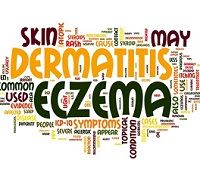Article
Atopic Dermatitis Yields to Asthma Medication
Author(s):
An asthma drug shows promise for atopic dermatitis--but its costly.

Omalizumab (Xolair, Genentech, Inc), a monoclonal antibody approved for treatment of allergic asthma and chronic idiopathic urticaria, was associated with improvement of recalcitrant atopic dermatitis (AD) in patients of a recently reported case series.
Principle investigator Simon Thomsen, MD, PhD, Department of Biomedical Sciences, University of Copenhagen, Denmark and colleagues in the Department of Dermatology, Bispebjerg University Hospital, Copenhagen described a series of 9 patients treated with omalizumab for AD which had not improved despite four or more trials with AD treatment protocol systemic medications.
With follow-up data available on 8 of the 9 patients, the investigators reported that the omalizumab treatment was well tolerated and that four (50 percent) had a good or excellent response, one had moderate effect, and three experienced no apparent benefit. The case series, along with a systematic review of the literature on omalizumab for AD, was posted on-line June 23 in the International Journal of Dermatology
Patients received 300mg of omalizumab subcutaneously every 4 weeks for periods ranging from 1 week to 5 years. The agent was discontinued if symptoms worsened or did not improve, but there were no adverse reactions that prompted discontinuation.
"In general, treatment was tolerated very well," the investigators explained, "and no patients reported any adverse effects except episodic local flare-ups of AD, which is believed to be a natural part of active AD."
The investigators noted that recommendations for use of the agent in clinical practice will await evidence from larger, randomized controlled trials (RCT), and that at least two RCTs are now being conducted. In their review, they also found a total of 26 small studies with a median of four patients each, and that among that total of 174 patients, 129 (74.1 percent) were reported to have had beneficial effect.
"Omalizumab appears to be a safe and well tolerated, however expensive, treatment with some clinical benefit in patients with severe recalcitrant AD," Thomsen and colleagues concluded.

Study Compares ChatGPT-4 Diagnostic Abilities to Teledermatologists




